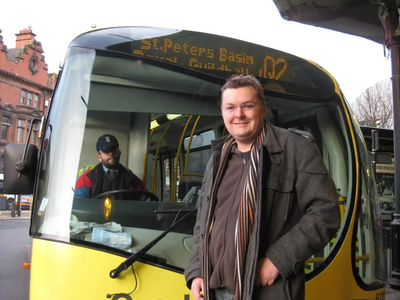Clean Air Zone fudge is a major missed opportunity on clean air and sustainable transport alternatives in Newcastle say City's Liberal Democrats
Opposition Liberal Democrats on Newcastle City Council have described the final plans for the city's first Clean Air Zone charging scheme as a fudge resulting in the burden of charges falling on essential vehicle use and a major missed opportunity to drive down emissions and congestion and improve air quality and public health.

After years of prevarication, with several previous draft proposals scrapped, the council's proposals for a Category C Clean Air Zone are now aimed exclusively at diesel commercial vehicles including buses, taxis, vans, and HGVs, which will face charges of between £12.50 a day and £50 a day for the largest vehicles, but without any measures to encourage a shift away from private car use.
Newcastle's Liberal Democrats are now asking a series of questions about the viability of the scheme, the potential financial risk if charge income falls below expectations, and the extent to which the proposed transition grant scheme will cover affected commercial vehicle users.
The Opposition are also issuing criticism of the council's failure to pursue options which would help to reduce reliance on private car use, suggesting that the council has missed significant opportunities to develop park and ride provision in the city which would offer electric shuttle bus services into the city centre.
Opposition transport spokesperson Cllr Greg Stone said
"The council has dithered, delayed, and wasted a considerable period of time in pursuing charging zone plans which have been steadily whittled away to a scheme which will hit self-employed owner-operators and small businesses the hardest but will do little to reduce congestion or emissions.
They claim they have been forced to implement a plan that delivers improvements in the shortest timeframe, but the reality is we are three years down the line and nothing has yet happened. It could have usefully spent that time acquiring sites for park and ride or expanding existing provision, and implementing electric bus shuttle services as cities like York have successfully done. There is nothing in these plans which addresses air quality problem areas like the Coast Road and Great North Road corridors.
We are also yet to see any expansion of the city's air quality monitoring or implementation of the council's promised Safer School Streets. We find the administration's record of delivery on transport initiatives to be utterly underwhelming. Nobody wants to see significant charges on city residents who need to use a car, but it is hard to see what the council is doing to encourage a reduction in car dependency through these plans.
"We think there are fundamental questions to answer on what happens if the proposed £24m plan falls short of its targets on Government grant support (£14 million) and charging revenue (£10 million), and on how many of the affected vehicle operators like self employed tradespeople and taxi owners will actually receive transition grant funding.
The Opposition also wants to see the council rethink the proposed inclusion of community transport vehicles and PCV operators of school travel services for special educational needs children in the charging scheme. This is a highly regrettable tax on small community groups and the disabled, and we hope the council will exempt these groups from their plans."
